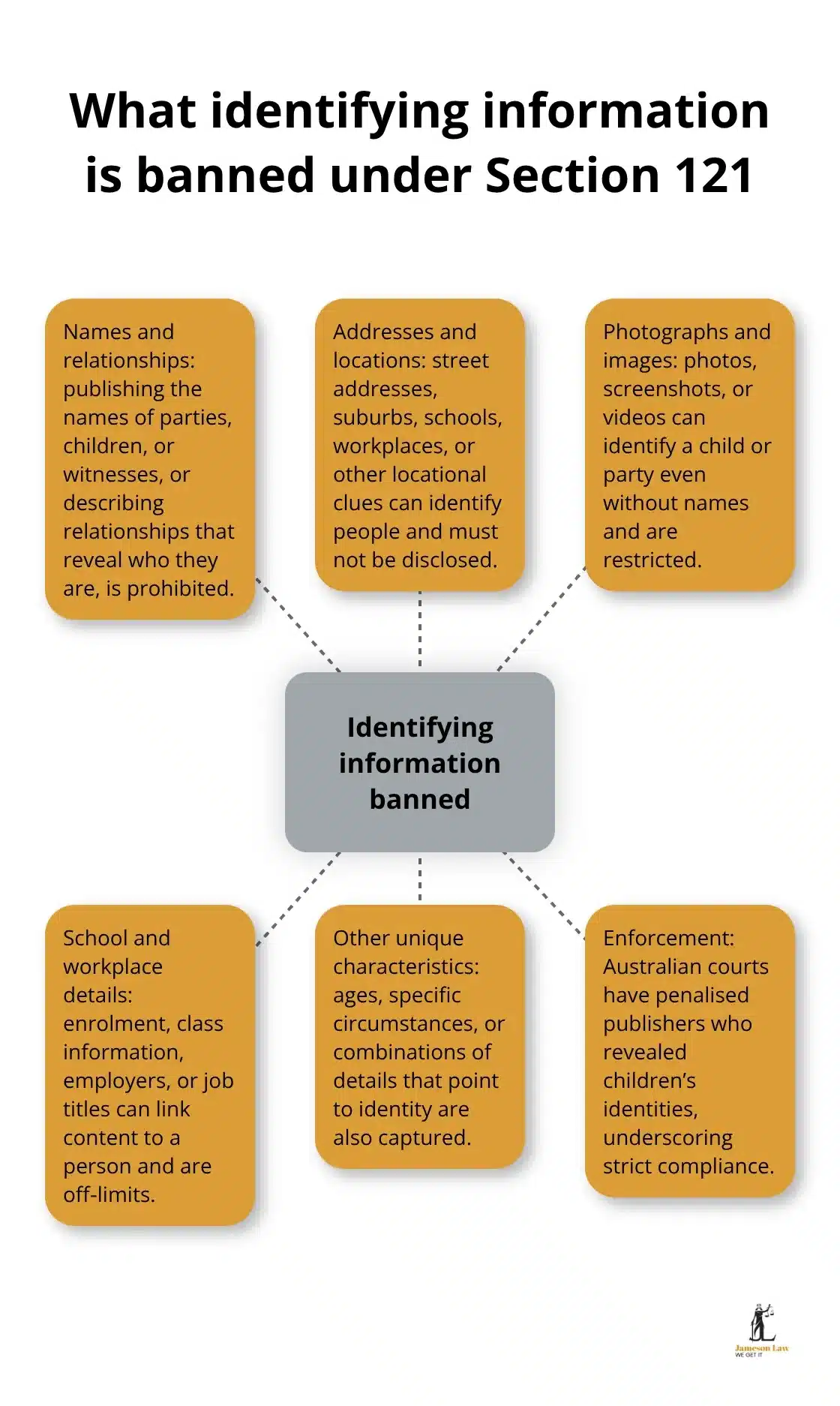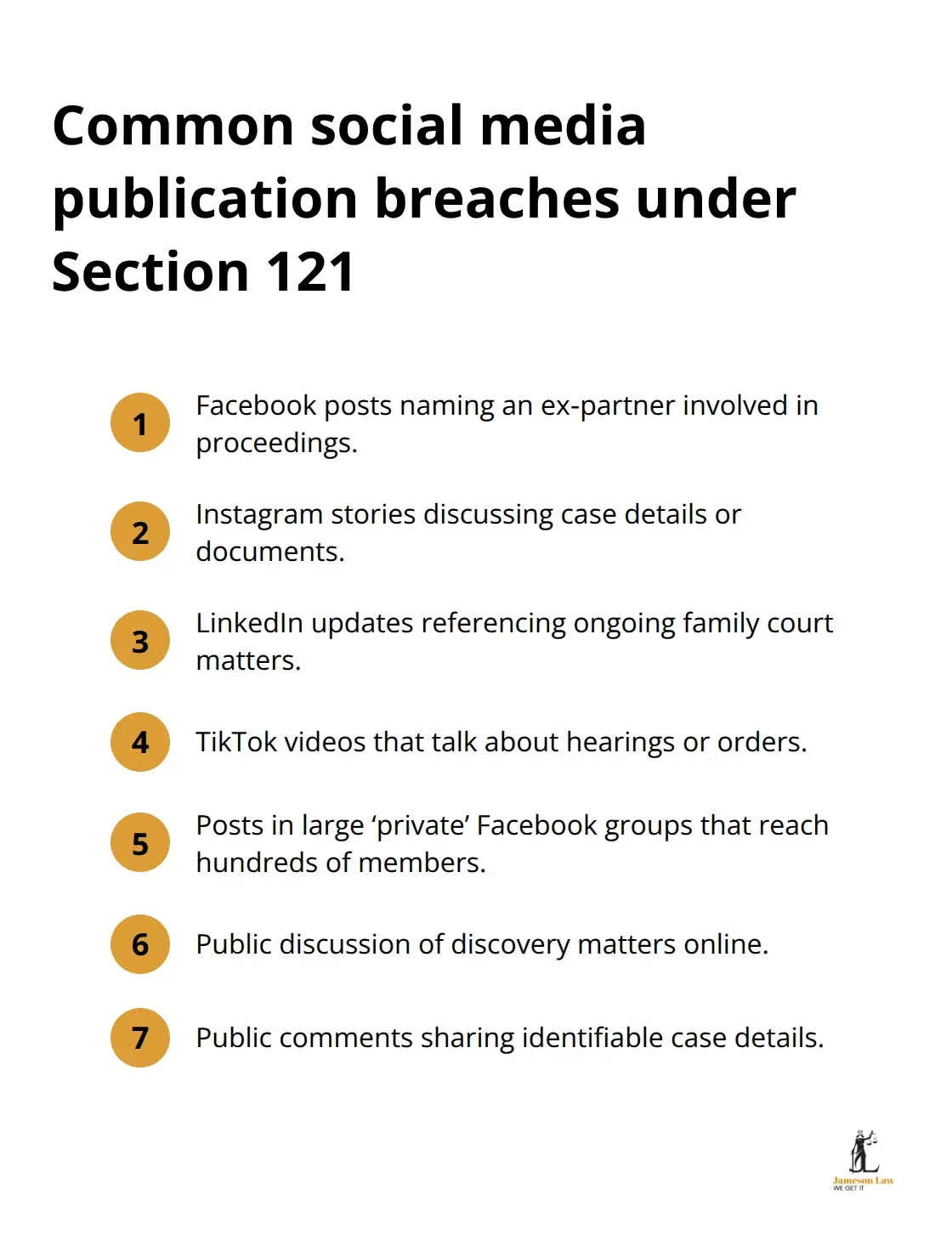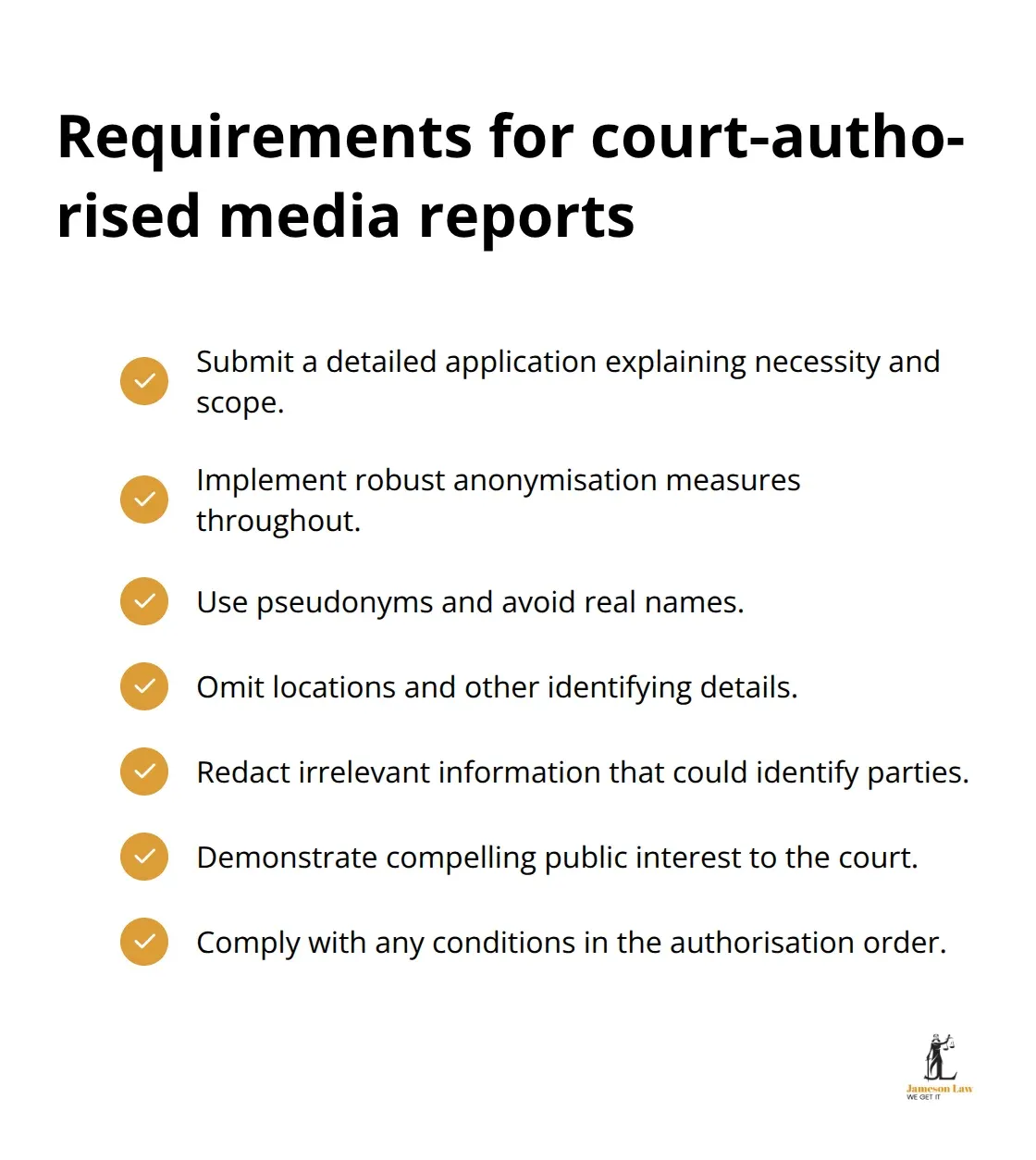Section 121 Family Law Act creates strict rules about what you can share publicly regarding family court proceedings (now re-enacted as Part XIVB, including ss 114Q–114T). Breaking these publication restrictions can result in serious legal penalties.
We at Jameson Law see many people unknowingly violate these laws through social media posts or sharing court documents. Understanding these restrictions protects both your case and your legal standing. If you are unsure, speak to us before you post.
What Section 121 Prohibits in Family Court Proceedings
Publication of Identifying Information
Part XIVB of the Family Law Act prohibits publication of information that could identify parties, witnesses or children in family court proceedings. This includes names, addresses, photographs, school or workplace details and any other characteristics that reveal identity. The Queensland newspaper case shows how courts enforce these rules when publishers reveal identifying information about children; see independent reporting by SBS News.

Publication is defined broadly. Social media posts, blogs, online forums and document sharing can all amount to publication. For official guidance on media and court material, see the Court’s Information for journalists.
Criminal Penalties and Contempt Actions
Under s 114Q and s 114R the maximum penalty is imprisonment for 12 months. Courts may also deal with serious breaches as contempt under s 112AP. These penalties apply once proceedings commence, not only after final orders.
Scope of Communication Restrictions
The law restricts communications that could reach the public. Private conversations with close family or your legal team remain permissible, but wider disclosure risks a breach. The Court also publishes anonymised statistics and materials without identifying parties; see the FCFCOA publications.
How Do People Violate Section 121
Social Media Posts Create the Biggest Risk
Facebook posts that name your ex-partner or child, Instagram stories about your hearing, LinkedIn updates about affidavits or TikTok videos that reference your matter can all amount to publication. Courts have sanctioned parties where posts discussed discovery or case details. If in doubt, get family law advice before sharing anything online.

Communication definitions now capture all electronic platforms. Any online post that reaches beyond your intended audience can be treated as publication to the public.
Document Distribution Triggers Criminal Penalties
Forwarding court documents, sharing affidavits or posting transcripts to groups or forums is publication. The maximum penalty remains up to 12 months imprisonment: see s 114Q. Prosecuting these offences requires the written consent of the Commonwealth Director of Public Prosecutions: s 114T and the CDPP Prosecution Policy.
Public Discussion Violations
Talking about case details at work or community events can also breach the law if identities could be inferred. The safest approach is to keep discussions general and avoid any details that might identify parties. When you need support, do it privately and avoid sharing documents. If unsure, ask Jameson Law before you speak.
When Can You Legally Publish Family Court Information
Academic Research and Educational Content
Universities and researchers may publish anonymised material with strict de-identification. Where specific cases are referenced, court approval or consent is required. For expert materials used in proceedings, see the Court’s guidance on expert witnesses and family reports.
Statistical Data and Court-Approved Publications
The Court publishes anonymised data and practice materials that do not identify individuals. Start with the Court’s Practice Directions for process and compliance information.
Media Reports With Explicit Court Authorisation
Media may report particular cases when the Court authorises it and strict anonymisation is followed. Unauthorised publication attracts penalties, illustrated by the Queensland newspaper fine reported by SBS News.

Professional Legal Publications
Legal professionals can publish anonymised case studies and practice guides that discuss family law principles without identifying parties. For general court information, see the Federal Circuit and Family Court of Australia.
Final Thoughts
Breaching publication restrictions can harm your case and lead to criminal liability. Keep identifying details out of public forums, avoid document sharing and get advice before posting. For tailored guidance on your situation, contact Jameson Law’s family law team or (02) 8806 0866, or book a confidential consultation in Sydney.













